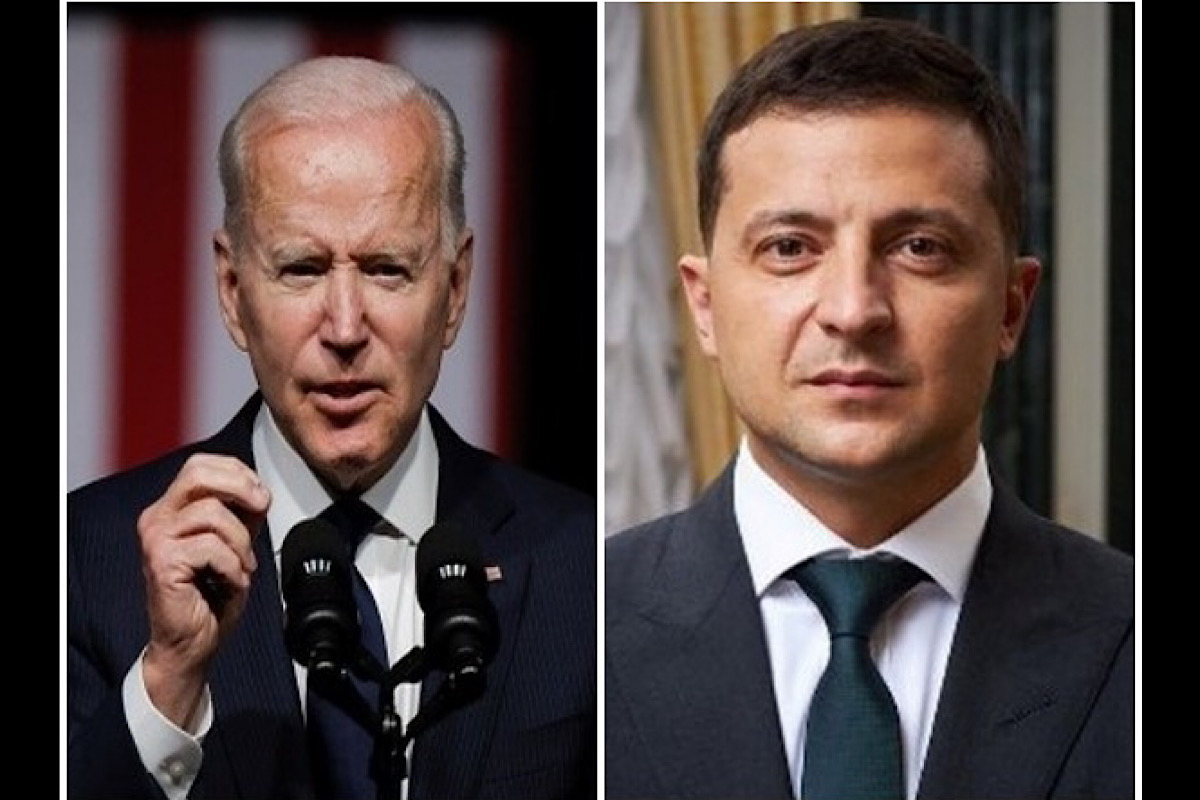As Ukrainian President Volodymyr Zelensky made his return to Washington, it was clear that the hero’s welcome he received nine months ago had yielded space to a more complex and uncertain diplomatic landscape. This visit underscores the evolving dynamics of US-Ukraine relations and the challenges that Mr. Zelensky faces on both sides of the Atlantic. One of the most significant aspects of the visit is the shadow of Mr Donald Trump’s potential return to power.
Mr. Zelensky was served an unwelcome reminder that Mr Trump’s influence over the Republican-controlled House of Representatives could jeopardise Ukraine’s crucial lifeline of support. The House’s failure to agree on funding Ukraine’s defence itself highlights the political turbulence Mr Zelensky must navigate. In the midst of this uncertainty, it becomes apparent that Ukraine’s survival depends on maintaining strong bipartisan support in the USA. On the other side of the coin, Americans witnessed the toll that war has taken on a leader who has defiantly resisted a Russian invasion. Mr Zelensky, once celebrated as a comic actor turned wartime hero, appeared at times exhausted and unsmiling during his visit. In a candid interview, he opened up about the personal strain of being Russia’s top target. His emotional fatigue serves as a reminder that while Ukraine battles external aggressors, its people also bear the heavy burden of prolonged sacrifice.
Advertisement
Mr Zelensky’s vocal criticism of the United Nations for failing to protect its members from aggression may have been a call to action, but it raises questions about the effectiveness of his relentless efforts to shame the world into action. It’s possible that he, too, recognises the need for a new approach in the face of mounting scepticism among Americans regarding aid to Ukraine. As America finds itself entangled in a second impeachment saga, Mr Zelensky may need to adapt his political strategies to an increasingly contentious American political landscape. The visit also underscores the delicate balance President Joe Biden must maintain in providing military aid to Ukraine while avoiding a direct confrontation with Russia. Mr. Biden’s reluctance to provide long-range Army Tactical Missile Systems (ATACMS) highlights the challenges of this balance. While he seeks to bolster Ukraine’s defence, he must also prevent a dangerous escalation with a nuclear superpower. Critics argue that his approach falls short of providing Ukraine with the means for a comprehensive defeat of Russia, but it acknowledges the larger geopolitical risks at play.
Fortunately for Mr Zelensky, there is still majority support in the US Congress for Ukraine’s resistance, a bipartisan stance that demonstrates the enduring strength of US-Ukraine relations. However, the refusal of Republican House Speaker Kevin McCarthy to publicly appear with Mr Zelensky underscores the divisions within his own party. Mr Trump’s promise to end the war in Ukraine if re-elected, complicates the landscape even further. Ukraine’s fate has become entangled with the broader struggle for the soul of the Republican Party











